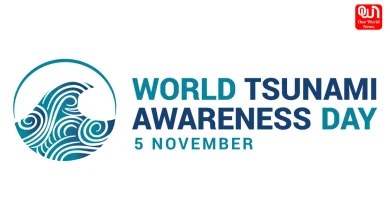Parent’s Perception Gaps: Report Cards vs. Reality
The survey exposes the gap between parental beliefs and standardized test results, urging reflection on the adequacy of report cards. Parents may be unaware of crucial learning discrepancies in their children.
Survey Reveals Discrepancies in Parents’ Awareness of Student Performance
In the realm of education, a recent Gallup and Learning Heroes poll reveals a noteworthy discrepancy between parental perceptions and standardized test results. A staggering nine out of ten parents believe their children are performing at grade level, a sentiment at odds with the stark reality unveiled by standardized assessments. This revelation, released on a Wednesday, sheds light on a crucial aspect of the education landscape, prompting reflection on the reliability of traditional indicators like report cards.
For many parents, report cards serve as a compass, guiding them in gauging their children’s academic progress. However, researchers suggest that these report cards might be missing the comprehensive picture, potentially leading parents to overlook opportunities for additional support crucial for their children’s growth and development.

Grades’ Holy Grail Misconception
Bibb Hubbard, the founder and president of Learning Heroes, emphasizes the pivotal role grades play in parental understanding. “Grades are the holy grail,” she states, acknowledging that parents often turn to grades as the primary indicator of their child’s academic standing. However, Hubbard astutely notes that a grade doesn’t necessarily equate to grade-level mastery, a vital piece of information that may not be effectively communicated to parents.
read more : Time Management: Always Running Late? Let’s Figure Out Why!
The Gallup survey paints a rosy picture, with 88% of parents asserting their child’s proficiency at grade level in reading, and 89% expressing confidence in their child’s math capabilities. This optimism, however, contrasts starkly with a federal survey’s findings, where officials reported that half of U.S. students started the last school year below grade level in at least one subject.
The impact of the COVID-19 pandemic on education is also scrutinized in a report examining grade point averages and test scores in Washington state over the past decade. The study reveals a notable uptick in grades during the pandemic, attributed to districts easing their grading policies to accommodate the challenges students faced. This leniency, while a compassionate response to unprecedented circumstances, may be concealing learning gaps evident in standardized test results.
The education landscape has witnessed a significant influx of federal pandemic relief funds, directed towards initiatives aimed at reinvigorating academic pursuits. Programs ranging from intensive tutoring to summer academic endeavours have been implemented across U.S. school districts. However, a challenge arises as fewer students than anticipated engage in these programs, potentially impeding the desired impact.
Parental Awareness Gap: Taking Action in Education
The Gallup poll findings underscore a prevalent trend – families may not be fully aware of the necessity to take proactive measures concerning their child’s academic performance. While half of the respondents in the survey claim to have discussed their child’s progress with teachers, the engagement skyrockets to 74% among parents who recognize their child’s struggles in math.
The limitations of report cards are highlighted by Sarah Carpenter, director of The Memphis Lift, an advocacy organization in Tennessee. Carpenter points out that report cards, typically comprising A’s, B’s, and C’s, lack the depth needed for a comprehensive understanding of a child’s academic journey. This gap in information, especially regarding reading levels, leaves parents grappling for a more nuanced understanding.
Empowering Parents Through Knowledge
Trenace Dorsey-Hollins, a parent and founder of the advocacy group Parent Shield Fort Worth in Texas, stresses the power of knowledge in advocating for children within the education system. Acknowledging that parents may not know what they don’t know, she urges them to leverage the information gained to demand better educational outcomes for their children and all children alike. In essence, knowledge becomes the catalyst for positive change within the education landscape, empowering parents to actively participate in shaping their children’s educational journey.
Like this post?
Register at One World News to never miss out on videos, celeb interviews, and best reads.








